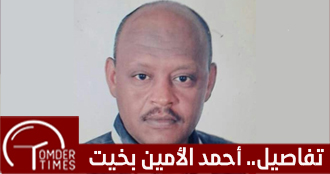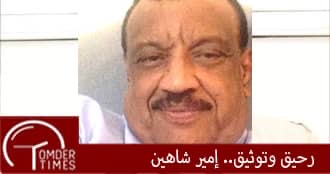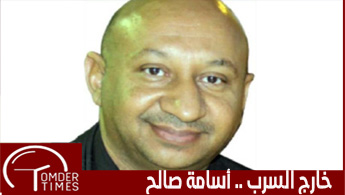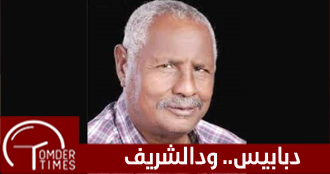وجه الحقيقة – إبراهيم شقلاوي.- حلاوة العودة غنيناها في موال..
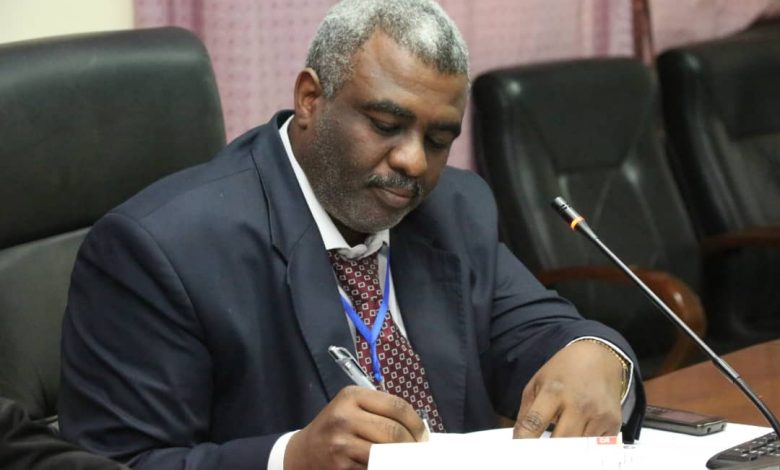
بالأمس تحدثت مع عدد من الأصدقاء والأحبة عن فكرة العودة إلى الخرطوم والسودان، وأتفق الجميع أن هذه هو الوقت المناسب لبداية الزحف إلى الديار زرافات ووحدانا ، أتفق الجميع على أن العودة لن تكون كما يتصورها البعض على شاكلة الأفلام الهندية ، التي يحتشد فيها الناس وامتعتهم في محطات القطارات والمطارات والباصات وهاك يا وداع وبكائيات حد النحيب ، ثم طفلة تائهه هنا وآخر يجري هناك ومناداة بمكبرات الصوت ، الرحلة رقم كذا المتوجهة للخرطوم، والرحلة رقم كذا المتوجهة للميناء البري ام درمان، والرحلة رقم كذا لمحطة القطار إلى بحري ، الأمر مختلف عن ذلك كثير أيها الأحباب، العودة هذه تظل قرار فردي وقد بدأت منذ أن طهر الجيش ام درمان من التمرد، كانت عودة بهدوء وشجاعة ، مثلما كان الهروب من ويلات الحرب بذات الهدوء والشجاعة ، بالأمس حسب وكالة السودان للأنباء : قال مصدر مسؤول بمعبر أشكيت الحدودي بوادي حلفا إن المعبر استقبل عددا كبيرا من السودانيين الذين نزحوا بسبب الحرب إلى مصر ، وأن تلك الأعداد جاءت في إطار العودة الطوعية بعد بشريات الانتصارات التي عمّت البلاد ، إلى جانب عدد من المخالفين للوائح الدخول وتم ترحليهم ، وكشف المصدر أن عدد الذين عادوا إلى البلاد عبر معبر اشكيت في شهر أغسطس بلغ ( 7890) شخصاً ، وفي سبتمبر ( 12539) شخصاً غالبيتهم من الأسر ، موضحاً بأن أغلب قرار عودة الأسر السودانية من الشقيقة مصر ارتبط بانتصارات القوات المسلحة واسترداد أراضي ولاية الخرطوم مؤخراً ، يبقى بعد ذلك أمر العودة تحكمه الظروف الإجتماعية والفروق الفردية بين الناس بحسب الحنين للوطن وللمكان والذكريات وفي هذه بالتأكيد تفوق أهل الأدب والفن والشعراء المعجونين من طينة الجمال ، أول أمس عاد النور الجيلاني إلى الكدرو حين سمع عبور الجيش كبري الحلفاية ، ووجد في أستقباله أحبائه وجماهيره ، وجد الجيش مرحبا به وأوقف له سيارة ذات دفع رباعي لتقله إلى داره آمنا سالما موفور الكرامة ، إلا إن صاحب كداراوية أصر أن يعبر الكبرى (كداري) راجلا رقم الإعياء والتعب ، مكنوه من ذلك بضع خطوات ثم أوصلوه الي بيته ، ومثله فعل صاحب، القاش وشمس الصيف القيف يعاين القيف ، ذلك الأنيق جزيل العبارة عبد الوهاب هلاوي عاد إلى الحلفاية حيث الذكريات والدار الوريف والجيرة التي تغنيك عن الدنيا وما فيها أو هكذا وصفها ، وكتب عنها هذه الكلمات الأنيقة ، بعد غيبة استمرت منذ قيام الحرب المؤامرة ، الرجل تدفق شعرا وكلمات جزلى كعادته : ها أنا أعود لداري بحمد الله في مدينة الحلفاية ، نعم لم يتركوا لي في الدار من شئ .. لقد أخذوا كل شئ .. فقط عجزوا عن أخذ قلبي .. إيماني بربي .. وثقتي في القادم من الأيام .. َ شكرا أهلي في الجيش الذين أعانوني على طريق العودة.، شكرا صديقي النبيل محمد حامد.، سأكتب لاحقا وبتفصيل ، والمكيف بكره برجع ، برجع المال .. والأثاث.. الذهب يوم بكره برجع.. تأني بيرجع لينا ماس.. المهم أخلاقنا ترجع .. وتاني نرجع نحن ناس .. الحمد لله رب العالمين هكذا ختم مناجاته ، كذلك يستعد الأنيق عاصم البنا : الشافنا راجعين لي ديارنا .. اصلو ما كضب .. قريب ، لا معابر.. لافي عابر.. لا جوازات.. لا تذاكر ، لافي زول عايش غريب ، الشافنا قاعدين نص ديارنا أصلو ما كضب قريب.، وعما قريب .. الهمبريب .. صدقني يا محجوب بعود .. يفتح شبابيك الحبيب..، هذه ثنائية ما بعد الحرب احتشدت فيها العاطفة والإرادة والمشاعر الطيبة والحنين للوطن بين هلاوي و عاصم البنا ، تلك هي مشاعر أهل الأدب والفن، كذلك عاد إسحاق الحلنقي إلى امدرمان التي عشقها وعشقته عاد إلى إنسانها وأنسامها ، قال فيها : بكرة تظهري يا حقيقة وتكتب الأيام حكاية، تبقي قصة وعبرة باقية وتبقي للأجيال دراية ، تحكي عن أكبر مخطط ناوي للسودان نهاية .
وعن عميل خائن لبلدو الله لا حققلو غاية .
وتحكي عن أبطال شوامخ قمة في فن الرماية .
ضحوا بالأرواح رخيصة وطفوا نيران البداية .
جيشنا عاتي وجيشنا صاحي أصلو ما بحتاج وصاية .
طالما من خلفو شعبو إلا هنا تفيض عناية .
هكذا اختلجت مشاعر السودانين وتزاحمت في حب الوطن والجيش وحلاوة العودة للديار التي تغنى بها الباشكاتب من قبل ، حلاوة العودة غنيناها في موال ، عليه يظل وجه الحقيقة في أهمية الاستطفاف الوطني في هذا التوقيت المهم من تاريخنا، اصطفاف يعلي معايير الإنتماء الحقيقي لهذا البلد لأجل إعماره ونهضته ونهضة انسانه، لن يتأتى ذلك إلا بوحدة أهل السودان جميعا دون اقصاء أو تمييز ، فقط بعد نبذ العنصرية والجهوية والارتهان للأجنبي ، والتصدي للأطماع الاقليمية، والدولية.
دمتم بخير وعافية.
الثلاثاء 8 أكتوبر 2024 م. Shglawi55@gmail.com
_*The Face of Truth*_/ Ibrahim Shaglawei
*The Sweetness of Return, We Sang It in a Poem.*
Yesterday, I spoke with a number of friends and loved ones about the idea of returning to Khartoum and Sudan, and everyone agreed that now is the right time to start the journey back to our homes, in groups or individually. We all agreed that the return would not be like what some imagine, like scenes from Indian movies, where people and their belongings gather in train stations, airports, and buses, with farewell scenes and weeping to the point of wailing, followed by a lost child here and another running there, with announcements over loudspeakers: “Flight number so-and-so, heading to Khartoum,” “Flight number so-and-so, heading to the Wadi Halfa land port,” and “Train number so-and-so to the Bahri station.” The situation is much different, my dear ones. This return remains a personal decision and began since the army cleansed Omdurman from the rebellion. The return was quiet and brave, just as the escape from the horrors of war was with the same calm and courage.
Yesterday, according to Sudan News Agency (SUNA), a responsible source at the Ashkit border crossing in Wadi Halfa said that the crossing received a large number of Sudanese who had fled the war to Egypt, and these numbers came as part of voluntary return following the good news of victories that spread across the country, in addition to a number of violators of entry regulations, who were deported. The source revealed that the number of those who returned to the country via Ashkit crossing in August was (7890) people, and in September, (12539) people, most of whom were families. The source clarified that the majority of Sudanese families’ decision to return from sisterly Egypt was linked to the victories of the armed forces and the recent recovery of areas in Khartoum State.
After that, the matter of return is governed by social circumstances and individual differences among people, depending on their longing for the homeland, the place, and memories. In this, certainly, the people of literature, art, and poetry, who are molded from the essence of beauty, excel.
Two days ago, Al-Nour Al-Jilani returned to Kadaro when he heard that the army had crossed the (bridge) in Al-Halfaya, and he was met by his loved ones and his fans. The army welcomed him and stopped a four-wheel-drive vehicle to take him safely and with dignity to his home. Now, the “Kadari” man insisted on crossing the bridge (Kadari) on foot, despite the exhaustion and fatigue. They allowed him a few steps, then escorted him to his house. Similarly, Abdul Wahab Hilawi, the owner of “Al-Qash” and “Shams Al-Saif,” returned to Al-Halfaya, where memories, the beautiful home, and the neighbors who enrich you beyond everything else reside, or so he described it. He wrote these elegant words about it after a long absence since the beginning of the conspiracy war. The man poured out poetry and words as eloquent as ever:
“Here I return to my home, thanks to God, in the city of Al-Halfaya,
Yes, they left me nothing in the house… they took everything…
Only they couldn’t take my heart… my faith in my Lord…
And my trust in the coming days…
Thank you to my people in the army who helped me on the road to return…
Thank you, my noble friend, Muhammad Hamid…
I will write later in detail…
And tomorrow the air conditioning will return…
The money… the furniture… the gold, tomorrow will return…
Time will bring back the essentials…
The most important thing is that our morals return… and we will return, people once more…
Praise be to God, Lord of the worlds.”
Thus, he concluded his prayer.
Also, the elegant Asim Al-Banna is preparing:
“We’ve seen those returning to our homes… they surely did not lie… soon…
No crossings… no passerby… no passports… no tickets…
No one lives as a stranger…
We’ve seen them, sitting in our homes, surely they did not lie, soon…
And soon… Al-Hembrip…
Believe me, O Mahjoub, I will return…
It will open the windows of the beloved…”
This post-war duality captured both emotion and will, along with good feelings and longing for the homeland, between Hilawi and Asim Al-Banna. These are the feelings of people of literature and art.
Similarly, Ishaq Al-Hallanqi returned to Omdurman, which he loved and which loved him back. He returned to its people and breezes. He said about it:
“Tomorrow, you will appear, O Truth, and the days will write a story,
It will become a tale, a lasting lesson, and knowledge for the generations,
It will tell of the greatest plot aiming for Sudan’s end,
And of a traitorous agent to his country, may God not fulfill his aim,
And it will tell of brave heroes, masters in the art of shooting,
They sacrificed cheap souls and extinguished the fires of beginning,
Our army is mighty, and our army is awake, it surely doesn’t need advice,
As long as its people are behind it, our Lord’s care overflows.”
Thus, Sudanese emotions surged and mingled in love for the homeland, the army, and the sweetness of returning to the homes that the poet has sung of before. “The Sweetness of Return, We Sang It in a Poem.”
Therefore, the face of truth remains in the importance of national unity at this crucial moment in our history. Unity that raises the standards of true belonging to this land for the purpose of its construction, its revival, and the upliftment of its people. This will only be achieved through the unity of all Sudanese people, without exclusion or discrimination, only after rejecting racism, regionalism, and foreign dependency, and confronting regional and international ambitions.
May you be well and in good health.
Tuesday, October 8, 2024.
Shglawi55@gmail.com


